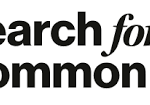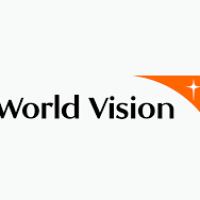Roles and Responsibilities
Support in the designing of the Indicator Tracking Template for the Strengthening Freedom of Religion or Belief (FoRB) in Nigeria through Legal Support and work closely with other project staff to roll out the template in capturing action data every month.
Using data from the ITT, ensure to develop Quarterly Project DMEL Dashboard using the traffic light system to indicate project performance and highlight areas for adaptation.
Work closely with the DMEL Manager to roll out a Beneficiary Feedback and Response Mechanism by ensuring that all the appropriate channels of communication operate optimally in the field.
Quality assure all project data and submit a report to the DMEL Coordinator with clear recommendations on how data quality in the organization can be improved. Upon approval of recommended strategy or any other that may be suggested, the DMEL Officer will be responsible for building the capacity of project Staff on how data in the project can be improved, and the validated data used for reporting.
Ensure the project team is aware of and up to date on all DMEL tasks and reports.
Conduct site visits using appropriate checklists during the project implementation phase in the target states and develop and share key findings with Project Team and the DMEL Coordinator.
In concert with the DMEL Manager, develop Monitoring and Evaluation plans for field-level
Share observations from monitoring visits with DMEL Coordinator when findings demonstrate questionable actions.
Support with the conduct of Bi-annual face-in Learning sessions and ensure that the learning logs section in GMS is updated periodically.
Conduct project monitoring visits regularly and report findings to the project teams to improve the delivery of activities in line with set standards.
Technically support in strengthening the MEAL capacity of Partner Organizations through handholding and training approaches.
Maintenance of up-to-date outcome data on the GMS and indicator tracking table of the project capturing progress against target of all project result indicators.
Conduct Quarterly DQA and devise appropriate strategies on how data quality in the project can be improved.
A university in international development, social science, economics, or a related field is required as a minimal qualification for this role.
Additional education in conflict management and Monitoring and Evaluation
Required Experience
At least 3-5 years of experience in peacebuilding, gender mainstreaming and Do No Harm related work.
Experience in managing a team and project management in the field of conflict resolution, conflict transformation, development or related fields.
Knowledge of and exposure to a wide range of conflict prevention; peace; conflict transformation; governance; and development and humanitarian issues;
Good knowledge of the country context and ability to network with both civil society and public sector
Ability to review and analyze and interpret financial reports, budget versus actuals, financial projections and procurement documentation;
Good interpersonal and networking skills, as well as the ability to conduct professional working relationships;
Experience in setting performance objectives of teams and leading a team.
Willingness to keep abreast of new developments in farmer-herder issues, policies, laws etc.,s and peace-building fields;
Good knowledge of North Central, including the political, economic and social dimensions;
Basic computer skills (Microsoft Office Suite) and other software
Detail-oriented with ability to meet deadlines, both prescribed and self-imposed
Willingness and desire to learn while demonstrating self-initiative
Ability to adapt to new cultures and work in diverse environments
- Language Skills: (Native/Fluent/Basic)
- English Language (Fluent)
- Hausa (an added advantage)










